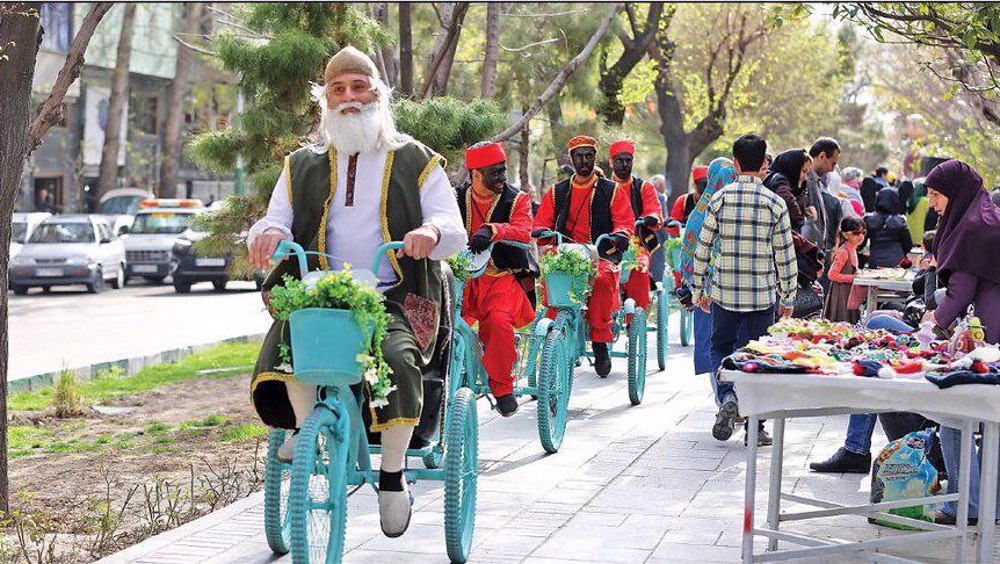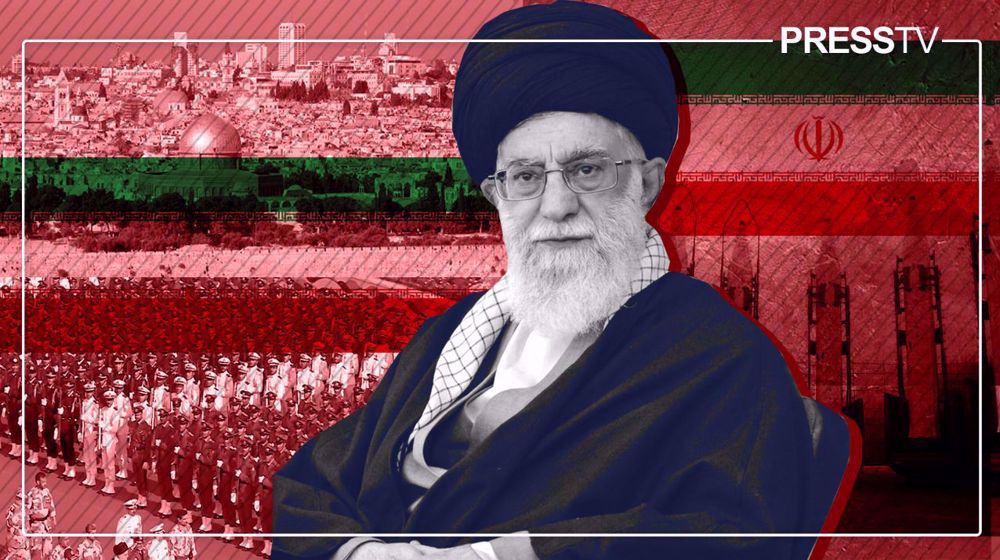Nowruz, messenger of nature, is back with glad tidings
By Humaira Ahad
The messenger of nature is here again, bringing with it glad tidings of unadulterated and unmatched beauty and joy.
Bushes are alive with finches and tits. Trees are sporting fresh leaves. That enchanting green garment is bringing smiles. Flowers are blooming. The scent of Hyacinths permeating homes is elevating mood.
Ponds have defrosted and the springs are again gushing with water, relaxing nerves. Birds are chirping, jumping and frolicking. Day and night have suddenly synergized, bringing charm and order.
The sky is glowing bluer and the gloomy grey clouds have vanished. The light is enough to lift spirits replacing that strip of Prozac. Everything seems alert and awake. New life is greeting the world.
The arrival of the messenger is announced by street singers with blackened faces, wearing bright red clothes and playing tambourines.
They are known as Haji Firooz. This messenger of nature is Nowruz, the spring equinox, and its arrival is celebrated in Iran and other countries.
Predating current geographical borders, Nowruz is celebrated as far as South and West Africa. Wherever the Persian culture went, Nowruz traveled with it.
Countries like Azerbaijan, Afghanistan, Tajikistan, Turkey, and South Asia, including Kashmir, celebrate Nowruz with great fervor and zeal.
Omar Khayyam, the famous Persian astronomer and poet described Nowruz as “the renewal of the world’.
It has also been associated with Imam Ali (AS). Many believed that Imam Ali (AS) was born and assumed the caliphate on this day.
According to legend, a gift of falooda, a sweet rose-flavored dessert, was sent to Imam Ali (AS) on Nowruz. When he found out the reason for the gift, he announced: “May every day be Nowruz”
Imam Jaffar (AS) is said to have maintained the importance of the remembrance of God on the day of Nowruz. According to one of the sayings of Imam Musa Kazim (AS), Nowruz is the day when God made a covenant with the souls to worship Him and not to associate any partners with Him.
It is on this day that the universe started its motion and the flowers appeared on Earth. Angel Gabriel appeared to the Prophet Muhammad (PBUH), on this first day of the spring equinox, thus increasing the significance of Nowruz for Muslims.
The traditions associated with Nowruz run deep in the Iranian psyche. It is a time when everyone appears to be happy and hopeful. People seem to break their shells and come to life celebrating the renewal of nature.
The most symbolic ritual is the table of ‘haft seen’ meaning seven things starting with the letter ‘seen’ in Persian. The number seven holds great importance both in the ancient Persian scriptures and in Islam.
The ‘haft seen’ comprises ‘Sabzeh’ (sprouts) representing rebirth and renewal. ‘Senjed’, (Russian Olive) symbolizes love. ‘Seeb’, (apple) is for beauty and health. ‘Seer’ (garlic) denotes medicine. ‘Samanu’, (wheat pudding) indicates fertility and wealth. ‘Serkeh’, (vinegar) stands for patience and wisdom and finally, Sumac (spice) mirrors sunrise, the start of a new day.
The scents of Nowruz can be perceived while walking the streets of Tehran. Whiffs of floral hyacinth, sharp-smelling vinegar, earthy wheatgrass, and subtle rose distillate fill the air with a characteristic fragrance that denotes the arrival of spring.
This show of smell reaches a new level upon entering an Iranian home. Persian cuisine being one of the world’s great gastronomies with food denoting refinement and diversity, is a treat for the perception of smell as well, not to mention the taste which rejuvenates the soul.
Persian cuisine is known to use fresh flowers and herbs like rose petals, fenugreek, and mint; spices like saffron, and cardamom, fruits like pomegranates and barberries, dried limes, and nuts, including pistachios, almonds, and walnuts. All these play with the taste buds putting the Nowruz fare at the pinnacle of culinary innovation.
As they find meaning in everything, food is also philosophized in Iran. Each food item you see on the table carries baggage of thousands of years of mythology and tradition.
Sabzi polo (herbed rice) with Mahi (fish) is the most important dish prepared for Nowruz. The fresh green herbs represent renewal and rebirth, fish symbolizes life and rice is a sign of prosperity.
A variety of cookies adorn the Nowruz table, my favorite being the chickpea flour cookies or noon e ‘nakhodchi’. They just melt in your mouth and you can’t stop asking for more.
Coming from the outer celebration to the spiritual importance of the day. This festival which primarily focuses on nature as the day begins to gain ascendency overnight, is the precedence of light over darkness, of enlightenment over ignorance.
The day symbolizes the celebration of spiritual renewal. It provides an opportunity to contemplate our bond with nature and our relationship with God.
Nature has been regarded in the Quran, the Book of God, as ‘Adatullah’, the character of God. It holds the power of guidance to mankind.
The beauty and harmony we see in nature can help us in achieving peace within. The signs of God scattered in nature can help us get closer to Him.
Let this verse of Hafiz, ز کوی یار میآید نسیم باد نوروزی ( The refreshing whiffs of Nowruz breeze reach here from the sacred path of my beloved), bring glad tidings to all of us celebrating Nowruz and let this life-giving breeze help us reach the highest purpose of our existence.
Humaira Ahad is pursuing her Ph.D. at a university in Tehran.
(The views expressed in this article are author's own and do not necessarily reflect those of Press TV)
Iraqi resistance leader urges Americans to ‘reclaim’ country from Israeli ‘puppet Trump
Iran blasts US-Israeli use of autonomous killer systems against civilians as 'war crime'
US-Israeli aggression left Tehran with no choice but to defend Itself: President Pezeshkian
Iran urges immediate intl. action against US attacks on schools
Iraq won’t allow terror groups to cross border into Iran: Security official
Iran’s security chief: Does America come first or Israel with 500 US soldiers killed?
Iran warns all Israeli embassies ‘legitimate targets’ if Lebanon embassy attacked
IRGC pounds bases of anti-Iran terrorist groups in Iraqi Kurdistan










 This makes it easy to access the Press TV website
This makes it easy to access the Press TV website